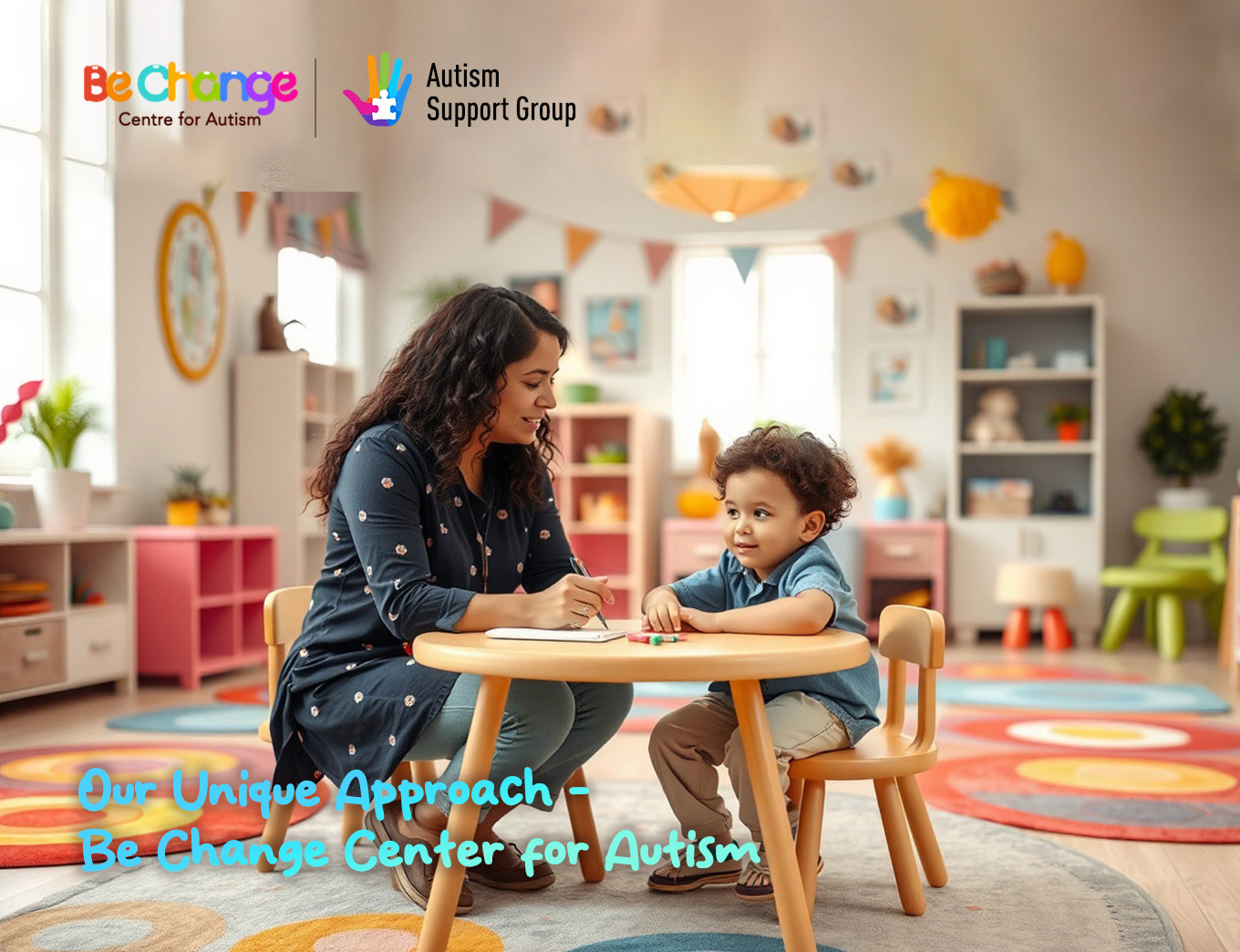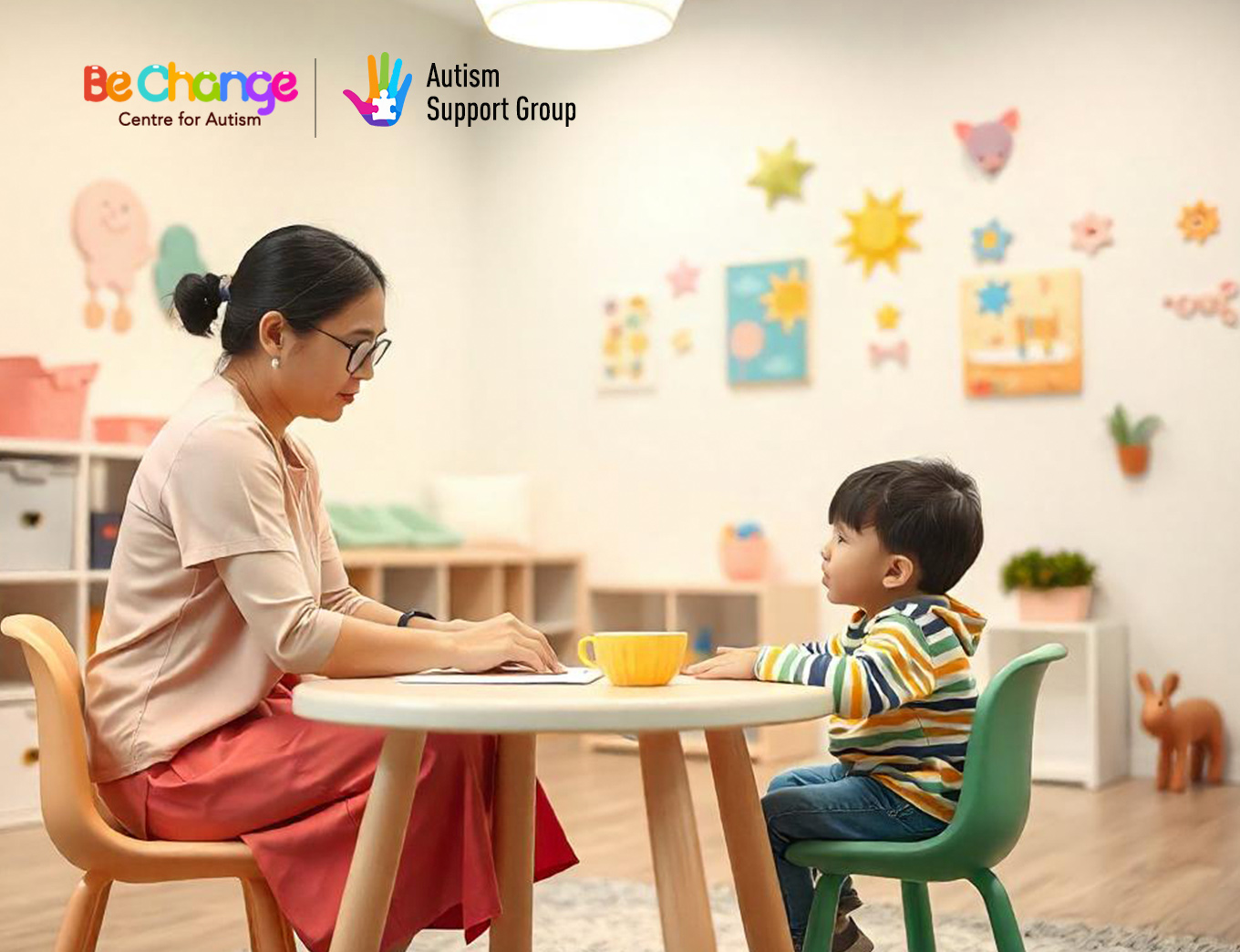
1. Transparency in Therapy: Why Does It Matter?
When it comes to autism therapy, transparency is crucial for a few reasons:
- Parental Involvement: Research shows that parental involvement significantly enhances the effectiveness of therapy for autistic children. According to a 2020 study published in The Lancet, when parents are directly involved in their child’s therapy, the child shows greater improvements in communication, social interaction, and adaptive behavior.
- Trust and Accountability: Allowing parents to observe therapy sessions fosters a sense of trust and ensures that therapists are accountable for their methods and progress. Centers that restrict access may be hiding inconsistencies in therapy or using outdated, ineffective techniques.
- Data-Driven Progress Tracking: Parents who can watch therapy sessions daily are better equipped to track their child’s progress. Daily updates allow for continuous adjustment in strategies to ensure the child receives the best care.
Be Change Center for Autism ensures this transparency by allowing parents to observe every session and have daily discussions with therapists. This practice not only builds trust but also accelerates the child’s progress due to real-time feedback and involvement.
2. A Parent’s Role in Therapy: The Be Change Approach
At Be Change, the philosophy is that parents are co-therapists. Here’s why this approach matters:
- Consistency: Autistic children benefit from consistency between home and therapy environments. When parents observe therapy sessions, they can replicate the techniques at home. A 2019 study in the Journal of Autism and Developmental Disorders found that children who receive consistent therapy both in the clinical setting and at home showed a 30% faster rate of improvement.
- Real-Time Feedback: Instead of waiting for monthly or quarterly meetings to understand their child’s progress, parents at Be Change can discuss each day’s session with therapists. This allows for real-time adjustments, ensuring the therapy remains effective.
- Empowerment: Daily observations empower parents to take an active role in their child’s development. According to a 2021 report by Autism Speaks, parental involvement reduces stress and anxiety levels, as they have a clearer understanding of what their child is going through.
Check out our new branch : https://maps.app.goo.gl/SNDxav7fybanc9Qe6

3. Comparison with Other Centers
Most other therapy centers in India operate with minimal parental involvement. Here’s a comparison based on common practices observed in India’s therapy centers versus Be Change:
| Criteria | Typical Therapy Centers | Be Change Center for Autism |
|---|---|---|
| Parent Observation | Rarely allowed; often limited to occasional visits | Allowed every session, every day |
| Progress Tracking | Monthly or quarterly reports; no daily feedback | Daily updates and discussions with therapists |
| Parental Role | Minimal involvement; parents not trained or engaged actively | Parents considered co-therapists, trained and involved daily |
| Therapy Transparency | Therapy occurs behind closed doors; parents rely on reports | Open-door policy; parents can observe and verify therapy |
4. Why Other Centers Restrict Parental Access
There are several reasons why other therapy centers restrict parental access:
- Concerns About Distraction: Some centers argue that parents may unintentionally distract the child during the session. However, Be Change addresses this by training parents on how to be passive observers without interfering in the process.
- Therapist Autonomy: Some centers believe that therapists should have complete control over the session, without parental input. However, research shows that collaboration between therapists and parents can enhance the quality of therapy.
- Privacy and Confidentiality: Some centers claim that restricting parental access is necessary to protect the privacy of other children in group sessions. Be Change handles this by offering individual therapy sessions where only the child and parents are present.
5. Benefits of Daily Parental Involvement at Be Change
- Real-Time Progress Monitoring: Parents can observe daily changes in their child’s behavior and skills, leading to a more immediate understanding of what works and what doesn’t. This avoids the risk of receiving delayed feedback, which can slow down progress.
- Immediate Behavioral Adjustments: Children with autism can have unpredictable behavior. By involving parents, Be Change ensures that strategies can be adapted quickly to suit the child’s immediate needs, instead of waiting for formal assessments.
- Skill Transfer: The ability to observe and practice the techniques used by therapists allows parents to apply these strategies at home, increasing the child’s exposure to positive reinforcement and therapeutic techniques.
Contact us today : https://bechange.in/contacts/

6. Parental Empowerment: Data on Success
Data suggests that when parents are empowered to actively participate in their child’s therapy, the outcomes are significantly better. According to a study conducted by the National Autistic Society (2022):
- 80% of children whose parents were involved in therapy showed marked improvement in communication skills compared to 40% improvement in children whose parents were not involved.
- Children with parent involvement had 25% fewer behavioral issues within 6 months compared to those whose parents were minimally involved.
At Be Change, this approach is taken to the next level with their daily inclusion of parents in the therapy process.
7. Personalized Therapy Plans: Tracking Progress Daily
Unlike other centers, which provide only monthly or quarterly updates, Be Change offers personalized therapy plans that are adapted daily. Here’s how:
- Daily Goal Setting: Each session at Be Change starts with a goal-setting discussion between the therapist and the parents.
- Real-Time Data Collection: During the session, parents can observe data collection, such as behavior charts, task completion rates, and skill acquisition metrics.
- Daily Progress Meetings: After each session, parents and therapists discuss what went well, what challenges were faced, and how to adjust for the next day.
8. Addressing Concerns: What to Expect as a Parent at Be Change
For parents who are new to autism therapy, the prospect of daily involvement may seem overwhelming. However, Be Change ensures that parents are fully supported:
- Parent Training: Before parents start observing sessions, they are given a brief training on how to watch the sessions without disrupting the process.
- Open Communication: Therapists are available for discussions every day, ensuring that no question or concern goes unanswered.
- Emotional Support: Be Change also provides emotional support for parents, helping them manage the stress and emotional toll that autism therapy can sometimes take.
Conclusion
Be Change Center for Autism stands out in India for its commitment to parental involvement, transparency, and daily feedback. Unlike other centers, which restrict access and provide infrequent progress updates, Be Change integrates parents into the therapy process, ensuring better outcomes for the child. For parents looking for a center that fosters trust, empowers them, and provides real-time data on their child’s development, Be Change offers a pioneering approach.
Remember that every child develops at their own pace, and some variability is normal. However, if you have concerns about your child’s development, early intervention from BeChange Center for Autism, Bangalore can be instrumental in providing the necessary support. Open communication with your child’s ABA therapist is the first step in the process of understanding and addressing developmental concerns. There are many resources available to support parents of children with ASD. With the right support, your child can thrive and reach their full potential.
Join Autism Support Facebook Group : https://www.facebook.com/groups/SupportAutism
